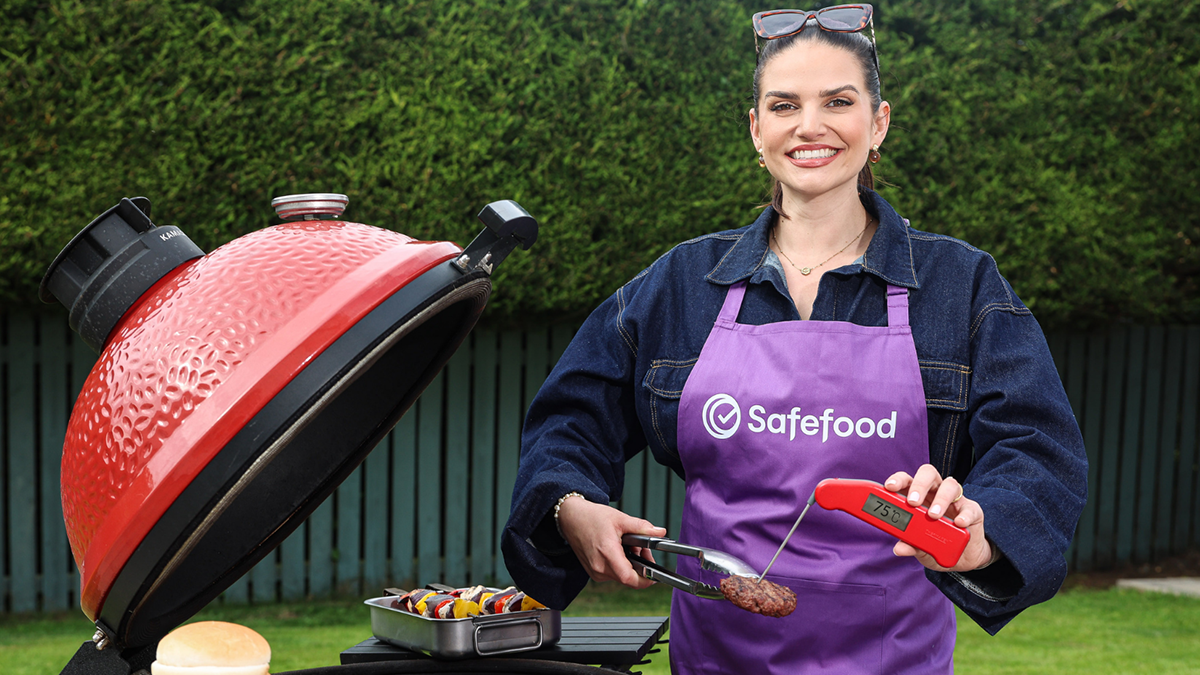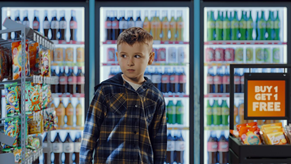NI cooks embrace the thermometer

Public attitudes towards meat thermometers are changing, new figures reveal
As barbecue season heats up across Northern Ireland this July Bank Holiday, Safefood is encouraging everyone to ‘Trust the Meat Thermometer’ – and new figures suggest the message is hitting home.
Recent research shows that more than a third of home barbecue cooks (38%) now own a meat thermometer – a 20% rise since the campaign launched in 2022. Even more encouraging, nearly a third (31%) of those who don’t yet own one say they plan to buy one, signalling a growing shift in cooking habits and a stronger public focus on food safety.
But while attitudes are changing, Safefood warns that undercooked meat remains a common risk at summer barbecues – especially when judged by sight alone. Food like burgers, chicken and sausages that look ready on the outside can still be dangerously raw inside. The only reliable way to ensure food is safe to eat is by using a meat thermometer to check it has reached a core temperature of 75°C.
“Our message is simple, whether you're a seasoned barbecue enthusiast or trying it for the first time, a meat thermometer is the most reliable tool you can use. Simply remove the meat from the heat, insert the thermometer into the thickest part, and once it reaches 75°C, you can be sure it’s safe to eat. It removes uncertainty and offers peace of mind that you won’t cause anybody to suffer from food poisoning.”
Dr Gary Kearney, Chief Executive, Safefood, said: “It’s encouraging to see a growing number of people in Northern Ireland placing greater importance on food safety and adopting the use of meat thermometers at home. In just a few short years, we’ve witnessed a positive shift in public attitudes – with more home cooks feeling confident and informed about how to cook meat safely.
“Our message is simple, whether you're a seasoned barbecue enthusiast or trying it for the first time, a meat thermometer is the most reliable tool you can use. Simply remove the meat from the heat, insert the thermometer into the thickest part, and once it reaches 75°C, you can be sure it’s safe to eat. It removes uncertainty and offers peace of mind that you won’t cause anybody to suffer from food poisoning.”
Local radio presenter and podcaster Jordan Arnold is backing this year’s campaign and says food safety has become second nature at home: “I’m delighted to support Safefood’s campaign. Being married to a chef has made me much more aware of how important food safety is – especially when it comes to cooking meat properly.
“With the good weather and the upcoming bank holiday season, I’ve set myself a summer goal of learning how to barbecue properly. I thought it was about time! It’s no secret I’m not exactly a pro at cooking, but using a meat thermometer takes all the guesswork out - so it’s now an essential part of my routine. I may not be the chief cook in my household, but at least I know I’m capable of it, and everyone is safe with whatever I serve up!”
Alongside using a thermometer, Safefood is reminding barbecue enthusiasts to follow a few key tips for safe outdoor cooking:
1. Start with a clean grill
Clean your grill thoroughly before and after use to avoid contamination from old grease or food residue. A warm or cooling grill is easier to clean and ensures better-tasting food. Use a suitable cleaning product and rinse with warm water.
2. Keep food cool in the heat
- Keep perishable foods like salads, coleslaw and dips in the fridge until serving.
- Keep raw meat chilled until you are ready to grill. Don’t leave it sitting out while lighting the barbeque.
- Store any cooked leftovers within two hours and consume within three days. If reheating, ensure food is piping hot and reheat only once.
3. Defrost before you grill
- Never cook meat directly from frozen. Always thaw thoroughly in the fridge - ideally overnight - to avoid uneven cooking and contamination risks. Allow the BBQ flames to die down before cooking for more even heat distribution.
4. Avoid cross-contamination
- Use separate utensils, plates, and cutting boards for raw and cooked meat.
- Wash your hands thoroughly before and after handling raw food.
- Never place cooked meat back on a plate that held raw meat.
Barbecues should be about fun, flavour and friends – not food poisoning. With just a little preparation and by trusting the meat thermometer, home cooks can serve up delicious, safely cooked meals that everyone can enjoy with peace of mind.
For more information, visit www.safefood.net.
ENDS
For more information or to request an interview, please contact:
ASG
Russell Lever / Naomi Finnegan
Mob: 077 8828 8901 / 07467547492
Email: [email protected] / [email protected]
Or
Safefood
Safefood: Dermot Moriarty / Hayley Linehan
Mob: 086 381 1034 (Dermot) / 087 406 9110 (Hayley)
Email: [email protected] / [email protected]




